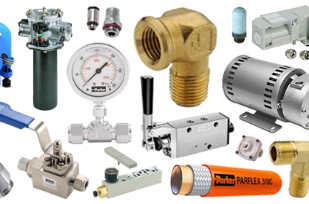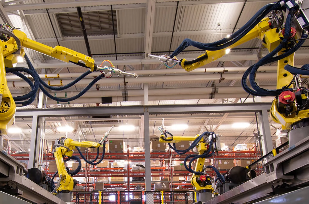Wondering what the contract manufacturing definition is, and whether it’s right for your business?
When you outsource manufacturing, you’re tapping into a professional resource that can help meet your business goals with minimal stress. Today, the global market for outsourcing is worth almost 90 billion dollars. Outsourced manufacturing makes up a significant percentage of this number.
In this guide, we’ll give you the contract manufacturing definition, plus all the essential information you need to know to decide if outsourcing is the right choice for your brand. Keep reading to learn more!
Contract Manufacturing Definition
Contract manufacturing simply means that one company hires a different company to make its products for them. This outsourcing might happen within the same country, or it might span countries with the two business partners being located at different places on the globe.
The company who needs to get products made will provide all the necessary details to the company they outsource to. Depending on the specifics of the agreement, one or the other company will be in charge of sourcing and purchasing materials, providing packaging, shipping the goods, and more.
Contract manufacturing always involves a contract to make sure each company gets its needs met. The contract might outline product specifications and quality expectations, dates for delivery, quantities of production, and more. These contracts can also cover research and testing for the product, which the production company might be in charge of.
Companies in many different industries outsource manufacturing to save money, streamline business operations, and more. Contract manufacturing can also be broken down into a few specific types – let’s take a look at what those are.
Facility Use
At its most basic level, a company might simply rent the use of facilities from another company to help them through the manufacturing process. Companies that lack the space or equipment to make their goods might take this step.
Parts Production
At the next level, one company might outsource the production of a specific part or piece of equipment to another company. The components are shipped out and then used in the final product.
Labor Contracting
Sometimes, a company will actually outsource to hire the labor to make parts or items for their business. If they don’t have the manpower to get it down, this is a valuable resource that opens up new opportunities.
Contracting for labor can also let companies tap into industry specialists to help them with the manufacturing process, without finding full-time employees for the job.
Complete Production
At the highest level, outsourcing manufacturing can mean hiring a second company to complete the production of goods from start to finish. This might even include the research and testing stages, as well as packaging design and more. Or, it might simply involve making the product itself, while the first company takes care of everything else.
How to Find a Manufacturer
Wondering how to find the best manufacturer for your needs? With companies around the world at your fingertips, making the right choice can seem impossible. Let’s make it easier with these essential tips for how to outsource.
1. Don’t Look for the Lowest Prices
It’s often tempting to narrow down the pool by looking at the companies that charge the lowest prices for manufacturing. While it’s good to save money and consider prices, this shouldn’t be the main decision-making factor for you.
Sometimes, seemingly low prices aren’t really what they seem. You might end up getting charge extra fees by the manufacturer to make up for costs that weren’t reflected in the price per unit. You also want to look for contractors who do the best work, which might not be the ones who charge the least.
2. Get Referals
One of the best ways to find a good contract manufacturer is to get them by referral. Ask your connections at parts suppliers and other businesses for their manufacturing recommendations. If you find a contractor through a method other than referral, make sure you contact some of their past clients to ask about the quality of their work.
3. Don’t Expect Perfection
Outsourcing to a good company can get you the results you want, but it doesn’t mean instant perfect. Partnering with a company to manufacture your goods elsewhere is still a complicated process that will require some work from you to get the best results.
You’ll need to stay active in managing your partnership so that it can succeed. Make sure you have operations in place to manage outsourced manufacturing before you get started. You can’t just set the process in motion and then leave it alone – you’ll need to be involved along every step of the way, and expect to run into a few complications. With a good partner and a hands-on approach, you’ll be able to navigate those complications without trouble.
4. Evaluate Carefully
Once you’ve narrowed down the pool of candidates for your contract manufacturers, it’s time to evaluate who you have.
One good way to find a good fit is to see if the manufacturer has made similar products in the past. If not, you might run into more difficulties due to their lack of experience.
Make sure to check that their production capacity can meet your needs, too. Have they worked with the volumes that you’re expecting to get? You can’t expect a small manufacturer to be able to scale up to meet your needs without issues. Check that they have the team and equipment in place to produce the right quantities.
Outsourcing Manufacturing: The Future of Business
The contract manufacturing definition is a simple but critical part of understanding how modern businesses are run. In today’s global economy, it often doesn’t make sense to keep manufacturing close to home. Instead, more businesses are outsourcing production in thriving business partnerships.
With this guide, you’ll also be able to forge a great manufacturing partnership and tap into the benefits of contract manufacturing. Want to learn more about modern manufacturing trends? Don’t miss this post.





